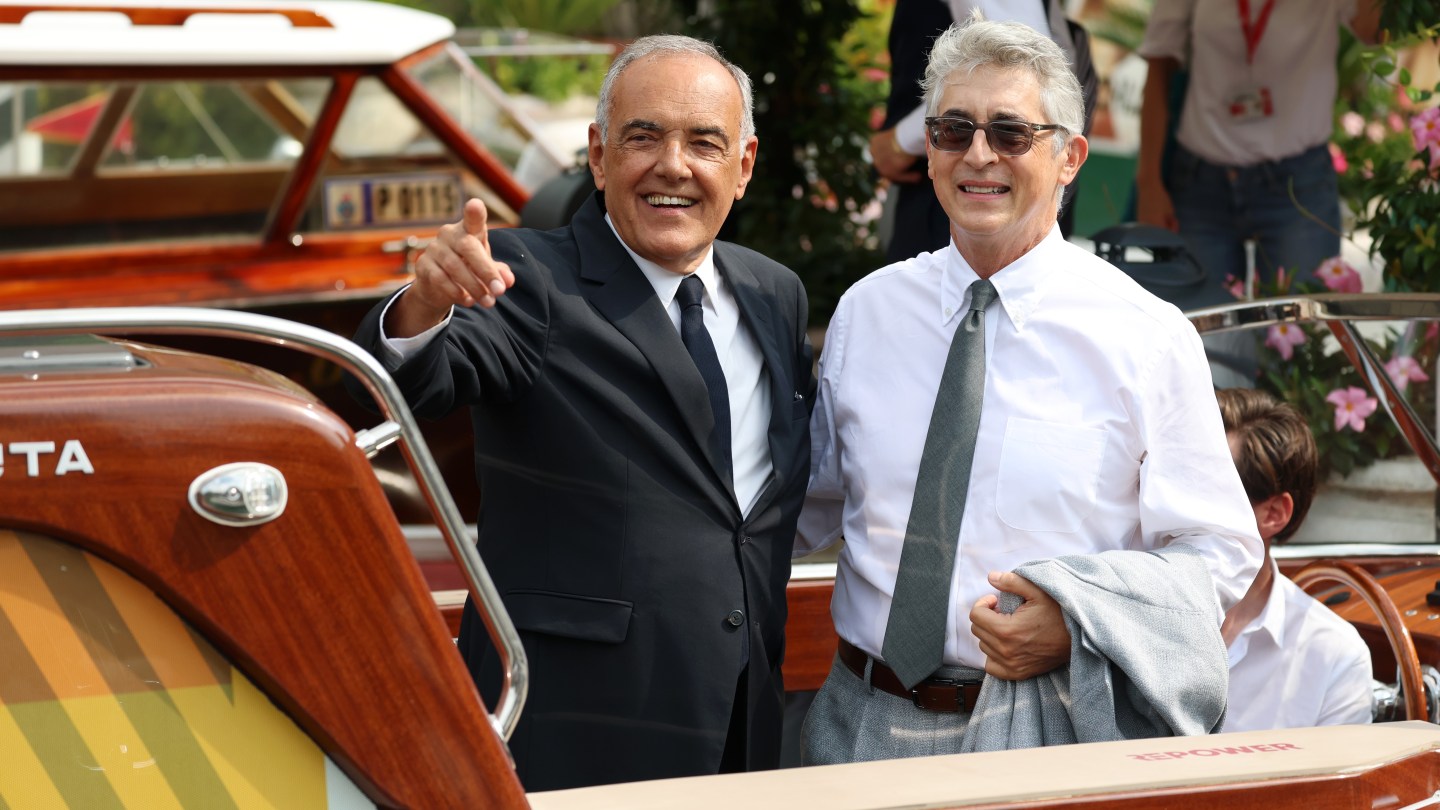In his first official appearance as the president of this year’s Venice Film Festival competition jury, veteran filmmaker Alexander Payne fielded some heavy questions about everything from the war in Gaza and his personal views on the ongoing conflict to the role of movies today amid a constantly shifting industry.
In fact, questions about Gaza dominated the start of the presser held inside the Lido’s Palazzo del Casinó — a Q&A session that saw Payne joined by festival director Alberto Barbera and fellow jury presidents of alternate sections, including filmmakers Charlotte Wells, Julia Ducournau, and Tommaso Santambrogio — but Payne opted not to weigh in at length.
He first was asked about how the jury will be approaching “what’s happening in the world” with conflicts raging in Ukraine and Gaza, but he deflected by suggesting it was a better question for Barbera as festival directors are more adept at answering as they have “their fingers on the pulse of cinema” and how it reflects culture, society and politics. But then another journalist asked a more pointed question: What are your views on Gaza?
“Quite frankly, I feel a little bit unprepared for that question,” Payne explained. “I’m here to judge and talk about cinema. My political views, I’m sure, are in agreement with many of yours. But as far as my relationship with the festival and what the industry does, I have to think about that for a while to give you a measured response.”
Barbera then took over by offering a more detailed response in Italian, adding that the festival has “not hesitated” to say that they are against the “enormous suffering” that is happening in Palestine, particularly with the deaths of civilians and “especially of children.” He also said that everyone is welcome at the festival and no one has been disinvited from participating.
Barbera’s comments come just hours after a protest in front of the festival’s red carpet premiere venue, Sala Grande, where two dozen pro-Palestine activists raised a “Stop the Genocide” banner as a way to call attention to the raging war in Gaza. The group has stated that they have a march scheduled for Saturday morning as another tool to demand the festival denounce what’s happening there.
The Venice Film Festival’s competition jury finds Payne serving as president with members including Brazilian actress Fernanda Torres, Iranian auteur Mohammad Rasoulof, French director and screenwriter Stéphane Brizé, Italian director and screenwriter Maura Delpero, Palme d’Or winning Romanian director Cristian Mungiu and Chinese actress Zhao Tao. He said that his role leading the team didn’t actually feel real until yesterday when he arrived “by water taxi to my beautiful hotel” and dropped his bags off.
“Soon I was seated next to Francis Ford Coppola watching a restoration of a 1928 silent film,” Payne revealed of his private itinerary. “And I thought, I’m in heaven. Now I get to watch 21, 22 films by incredible directors for the first time in a theater, not knowing anything about them, surrounded by jury members, all of whom I have the most immense respect for, and it’s an honor to be with them. This is heaven.”
The only hard part of seeing so many films? Deciding who to award with prizes. “We’ll figure it out somehow,” he teased.
The entertainment industry is also figuring out how to steady itself amid a shifting landscape of moviegoing habits and studio consolidation, and Payne weighed in on that as well during one of his answers to another heavy question: What is the relevance of movies today?
Payne approached his answer by focusing on “who sees movies and how.” He used himself as an example: “I watch a lot of movies at night, you know, on my stomach but I much prefer to see them projected in the cathedral of cinema. And I lament that many great movies, both of artistic and political importance, don’t become a larger part of the conversation — certainly a cinematic conversation — because of the immediate means of distribution [with streaming]. Maybe I’m just an old guy, I’ve been doing this for 30 years, but as a film lover, it’s typically films which have a theatrical release that become a part of the cultural conversation and then have some kind of impact.”
Payne then posed another question: Can a film really change society or culture?
“I don’t know, doubtful,” he said. “But at least though when we make films which are relevant to the times, we leave a document that someone was thinking about that. Did [Ernst Lubitsch’s To Be or Not to Be] or [Charlie Chaplin’s The Great Dictator] prevent World War II or the Holocaust? No, but they are documents that people were aware of at the time, even before those things happened. We have those [films] as documents and, as such, we can try to learn from them.”
Moments later, Payne offered a sneak peek at the speech he will deliver later this evening during the opening ceremony about how he’s approaching his work here on the ground. “I always tell myself, and I’ll tell my fellow jury members that we’re selected because working professionals that maybe know something about cinema. But at the same time, I think we should approach each film as though we’ve never seen a movie in our lives before, and to treat each movie we see as a type of small miracle.”
The miracles of 82nd edition of the Venice Film Festival will be presented this year from Aug. 27-Sept. 6.
